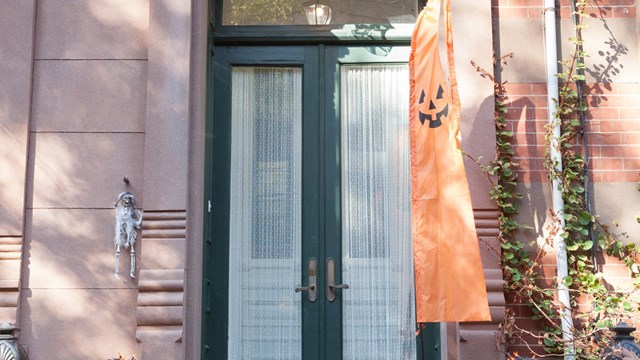In this day and age of rising costs and uncertain economic climate, co-op and condo administrators have their work cut out for them when it comes to finding new ways to raise funds without drastically reducing services, raising maintenance fees or charging residents special assessments.
One way many buildings—both co-op and condo—address the issue is by charging a “flip tax” or “transfer fee,” payable directly to the building or development, whenever an owner sells his or her unit.
In New York City, many co-ops and condos use what’s often called a “flip tax” in order to boost building revenue. The so-called “tax” is really a fee paid each time an apartment is sold—either by the purchaser or seller. The money collected goes back to the co-op or condo’s reserve fund. In New Jersey, the concept of the flip tax exists in several forms, but here they’re generally called transfer fees or “resale contributions.”
According to Edward S. Frank, a property manager with Arthur Edwards Inc. in River Vale, “People seem to shy away from a term that has ‘tax’ in it. That is why you don’t hear the term ‘flip tax’ in New Jersey. On the co-op side they call it a ‘realty transfer fee’ and on the condo side they call them ‘resale contributions.’”
There is also case law that prohibits flip taxes in some instances, says attorney Ronald L. Perl, a partner in charge of the community association practice group for Hill Wallack in Princeton. A board can not just decide to institute a transfer fee; there are procedures that must be followed. “Flip taxes are illegal unless specifically authorized by the [association’s] governing body. They’re permitted only if authorized in the original master deed or bylaw or amended to include them. I think New Jersey courts were concerned with giving governing boards—often just five or seven people—the authority to impose this without some sort of vote by the owners.”
Making the Flip
When it comes to raising revenue, buildings and associations have a limited number of options. Boards can increase monthly fees or level an assessment—neither of which are ever popular moves to make. Transfer fees are a sure-fire way for a building to raise cash, but some residents feel it’s unfair for them to have to pay what amounts to an “exit fee” at the very time that they’re leaving. They would prefer to get all the money due to them from selling their unit, and feel that the money they’ve already contributed to the community in the form of maintenance fees, assessments, and so forth during their time living there represents the extent of their obligation.
A transfer fee is usually paid at closing in one of three ways: the seller’s attorney can pay it, the seller can ask the purchaser to bring a certified or cashier’s check with him to pay it on his behalf, or the seller can have the purchaser’s lender bring a check for the amount.
How It Works
In New Jersey, says Jules Frankel, CPA, a principal of the East Brunswick accounting firm of Wilkin & Guttenplan, “You do not find flip taxes, but what you do find are membership fees or working capital contributions charged on a resale.”
And the fee can be determined in various ways, Frankel continues. “In New Jersey, typically, instead of being a percentage of the sale price, it is either a flat dollar amount or a multiple of the maintenance assessment of that unit—sometimes two times, sometimes three times. There are variations based on many factors: what is fair, what will pass the shareholder vote, what will generate the cash they are looking for.”
Another difference, Frankel adds, is that membership fees and working capital contributions are paid by the buyer, while flip taxes are usually paid by the seller. The relative scarcity of co-ops in New Jersey may be another reason that flip taxes never really caught on here.
In 2005, in the New Jersey legal case of Micheve vs. Wyndham Place at Freehold Condominium Association, a new owner sued the condo board, seeking recovery of a capital contribution fee of the type mentioned above. At that time, the court ruled that such fees were discriminatory because they only were levied on new owners, and thus violated the New Jersey Condominium Act.
The bill, says attorney David Byrne, based in the Lawrenceville, New Jersey office of Stark & Stark, was overturned and then clarified by legislation soon afterward. The revised bill, sponsored by Assemblyman Frederick Scalera, D-36, was approved in 2007. Now, Byrne says, the law permits membership fees and capital contributions “as long as they are authorized by that condominium’s master deed or bylaws.”
Follow the Flip
Where does the money generated by a transfer fee go? Does it always go into a building or association’s reserves, or can it be earmarked for special projects or capital improvements? In most cases, the monies go to the capital reserves—but this is not always the case.
If your board wants to implement a flip tax, adds Byrne, it needs to amend the bylaws and (in the case of a co-op) the proprietary lease, which can be quite an undertaking. The board would have to authorize the introduction of a resolution to implement such a fee, then introduce it at the annual meeting, or at a special meeting called expressly to discuss the matter.
After that, the shareholders or association members must approve the measure—and the governing documents have to be studied ahead of time to confirm the percentage of votes needed to amend them.
To avoid complications, Byrne says he recommends enabling language that doesn’t spell out a specific amount in the development’s documents. He recommends language saying that there will be a flip tax determined from time to time by the board or the shareholders, but not holding the board to any particular percentage or amount. That way, if the board wants to change the amount or percentage in the future, it will be much easier for them.
Opposition to Fees
Of course, it’s a given that most condo owners aren’t thrilled with the idea of paying a transfer fee. They don’t want to have to pay more money to the building or association—particularly if it took them a lot of time or effort to sell their unit, or if they invested a great deal of money in upgrading it and object to sharing the resulting profit with the board.
So how can HOA boards and managers address the issue of a transfer fee with residents who may be hostile to the idea? Most pros recommend making the fee reasonable and subject to approval by association members, rather than adopting it unilaterally, even if the HOA’s governing documents would allow the board to do so.
Thomas Vincent Giaimo, an attorney based in Red Bank, believes that he represents the first condo association to adopt a realty transfer fee in New Jersey. The HOA in question put a 1.5 percent realty transfer fee upon acquisition into the bylaws and placed the onus on the buyer to contribute that percentage of the purchase price back to the association.
“I think [transfer fees] are very appropriate as community associations in New Jersey look for creative ways to raise income,” says Giaimo.
In the case of Renaissance, an HOA in Northern New Jersey, Giaimo says, “We projected, based on closings of the prior year, that this community could perhaps match 15 to 25 percent of their operating income by the imposition of a realty transfer fee. That’s a lot of money. It made good economic sense for the community association.”
When trying to convince association members to get behind a transfer fee, clear communication is key. Holding meetings on the issue to discuss it and demonstrate how much more revenue it would generate for the association can help acclimate residents to the idea.
Some suggest perhaps phasing the tax in. For his part, Giaimo doesn’t believe a modest transfer fee will discourage buyers from purchasing in a given association. The board of Renaissance did an analysis before deciding to institute the measure in their HOA and found no real downside to adopting the measure.
“We felt there would be no adverse impact on sales in the community,” he says. “The board always needs to do what’s best, but we did an analysis and determined there would be no adverse affect on sales. Boards always have to protect the viability and marketability of the future. A realty transfer fee is a terrific revenue-raising vehicle. We recently stepped up to the plate, and this is the first community in New Jersey to adopt this—I don’t know why it took so long.”
In the final analysis, transfer fees may not be for every community, but they are one way HOAs looking to pad their bottom line can fortify their reserves and hopefully navigate more comfortably through today’s rough economic waters.
Raanan Geberer is a freelance writer and editor living in New York City.







Comments
Leave a Comment